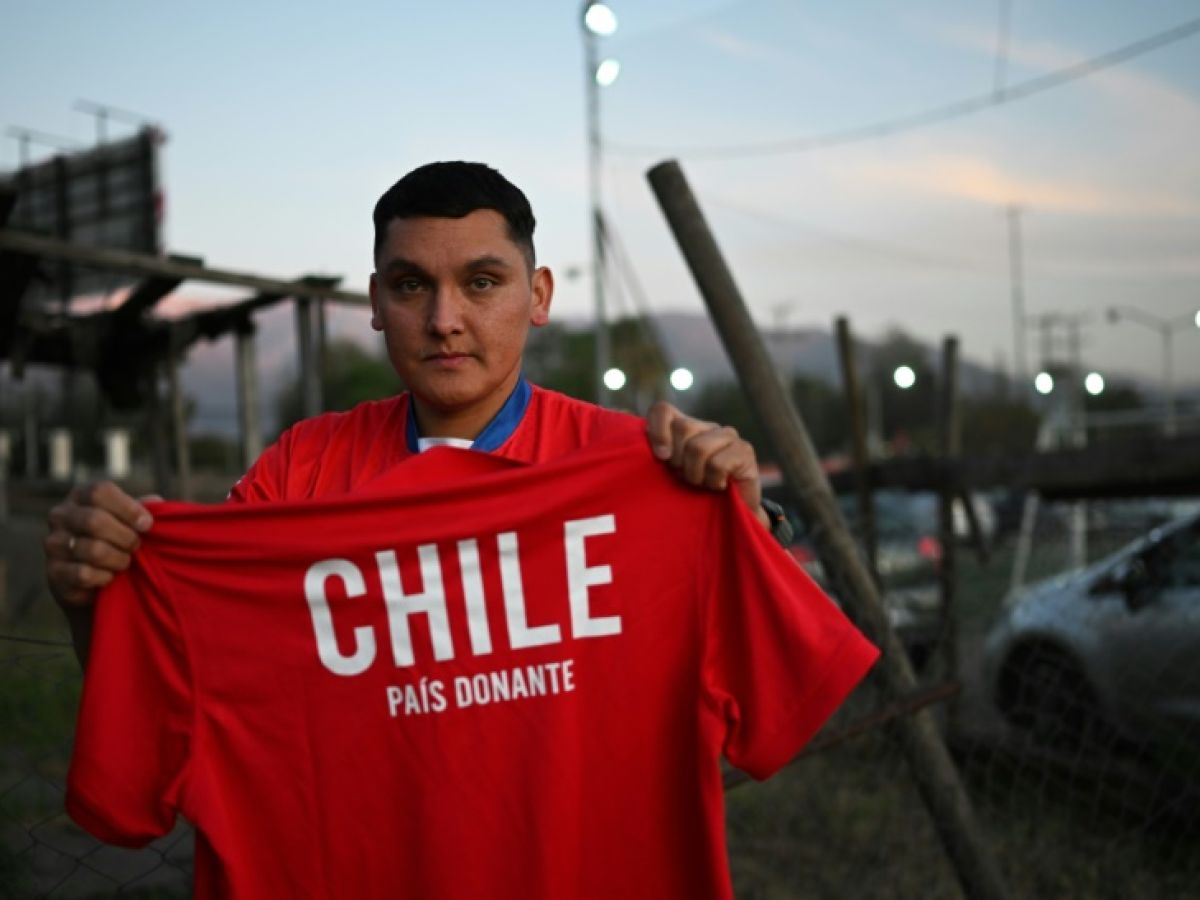Thanks to a liver transplant, Hector Sanchez, a 31-year-old car salesman, has found life again and a mission: to promote organ donation in a country, Chile, where the practice remains marginal.
As a child, the thirty-year-old dreamed of becoming a footballer. In September, he won the first World Cup for Transplants with his team.
It was in Italy, after a crushing 5-1 victory against Spain.
"Defending Chile in the World Cup and playing against other countries, I've always dreamed of it," he says, still out of breath after a friendly match in Santiago between transplant players and members of a charity that promotes organ donation.
Along with about twenty other transplants, most of them kidneys, they form the amateur team of the "Chilean Transplant Selection".

"They have to take care of themselves like any athlete and hydrate themselves," Ruth Leiva, head of the Transplant Unit at San Jose Hospital in Santiago, simply told AFP.
At nightfall, on a synthetic pitch, Hector Sanchez, wearing a red jersey with the number 11, runs and dribbles the ball with the ease of an ordinary player.
Under his jersey, however, two large scars bear witness to his difficult journey.
"If I hadn't had the transplant, I probably wouldn't be here," says the car salesman, seven years after his transplant.
– “Eyes ripped out” –
Although Chile passed a law in 2010 making any adult a potential donor, the number of transplants remains low at 10 per million inhabitants, according to figures from the Ministry of Health.

This rate is half that of Uruguay, the regional leader (19.7) and well below countries such as Argentina (18) or Brazil (17). At the global level, Spain holds the record in this area with 48.9 per million inhabitants.
Although "Chilean legislation is relatively advanced" compared to others, "there is not much awareness of donation," laments Ruth Leiva, specifying that the parents of the deceased have the possibility of refusing any donation.
"Many people believe that (their deceased parent) will have their eyes gouged out (...) and that they will not be able to watch over them," she notes, highlighting the many prejudices about organ donation in the country, where 2,200 people are waiting for a transplant.
Furthermore, Chile only considers brain-dead people as potential donors, unlike Spain, where organs can also be taken from people who have died of cardiac arrest, explains Ruth Leiva.
Hector Sanchez was supposed to have a transplant before the age of 15, but it was not until nine years later, at the age of 24, that he was able to benefit from it.

After an initial failure and eight months in intensive care, he was able to receive a second transplant, this time successful, which allowed him to gradually return to a normal life.
"As soon as you step on the field, you forget everything, I'm a normal person, I'm the happiest person," smiles Hector Sanchez

